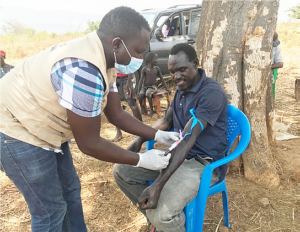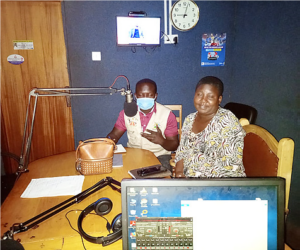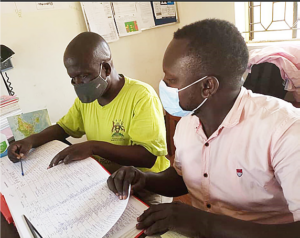 |
Daniel Jacob EmongBSc. BLT (MAk),MSc. International Infectious Disease. Management (MAK), Uganda Public Health, Fellowship Programme, Field Epidemiology Fellow Host Site: The National TB and Leprosy Program (NTLP)Host Mentor: Dr.Dr Deus Lukoye, Dr Simon Muchuro, Dr Stavia Turyahabwe |
|||
ABOUT THE FELLOWDaniel Jacob Emong is a cohort 2020 advanced field epidemiology fellow with a background in Biomedical Laboratory Technology. I hold a Master of International infectious Disease Management from Makerere University. I have over time gained interest in Tuberculosis (TB) and HIV/AIDS. During my time as a public health fellow, I was hosted at The National TB and Leprosy Program (NTLP), Ministry of Health for a two-year apprenticeship. I have conceptualised, designed and implemented studies in Tuberculosis including TB treatment outcomes among adult TB/HIV co-infected patients in Kampala Metropolitan, Uganda 2018-2020. At NTLP, I was able to carry out investigations to guide programme decisions. I have extensive knowledge in Tuberculosis and HIV/AIDS patient care, capacity building and health systems strengthening. Through this experience, I have built my confidence and extensive competence in designing study protocols and, implementing them, writing reports, abstracts, PowerPoint presentations, manuscript writing, data analysis, publication skills and investigating outbreaks including Rift Valley Fever and COVID-19 response. I have led two outbreak investigations and participated in 4 others. I have also been part of the COVID-19 response and control activities. I have undertaken several short courses and improved my skills in using data to develop policies, data analysis using statistical and spatial packages like STATA, SPSS, EPI Info and QGIS; Event-based surveillance and case-based surveillance. Achievements at the Host Site
Fellowship program specific achievements
Conference Presentations
Publications and Manuscripts
Summary of Epidemiological Study:Title: TB treatment outcomes among TB/HIV coinfected patients being treated in Kampala Metropolitan region, Uganda, 2018-2020 Background: There are 1.4 million persons infected with HIV in Uganda and 40% of those are coinfected with TB. WHO targets ≥90% TB/HIV treatment success by 2025. However, the TB treatment outcomes of TB/HIV co-infected patients need to be optimized. We described the epidemiological characteristics and treatment outcomes of co-infected patients during 2018-2020. Methods: We conducted a retrospective cross-sectional study in all TB-infected patients ≥15 years of age who tested positive for HIV and were initiated on TB/HIV co-treatment between 2018-2020 in six districts of Kampala metropolitan in Uganda. We considered at least one hospital with the highest volume of HIV patients. We abstracted demographics and treatment outcomes from TB and HIV registers. TB treatment success was defined as patients who were cured orthose who completed 6 months’ treatment as per the WHO guidelines. We described the patients’ characteristics and treatment outcomes. Results: Of the 317 TB/HIV patients on co-treatment during the study period, 202 (64%) were male and 136 (43%) were aged 25-34 years. In total, 265 (84%) had treatment success between 2018-2020, including 44% who completed treatment and 40% who were cured. Among the 44 (14%) who had unsuccessful treatment, 29 (65%) died, 9 (3%) were lost to follow-up, 7 (2%) failed treatment and 7 (2%) were not evaluated. Conclusion: The TB treatment success rate was very close to the national TB treatment success target of 85%. We recommended continued evaluation to identify factors associated with TB treatment failure. Key lessons learnt during the fellowshipPHFP has presented an opportunity for hands-on learning experience in field epidemiology and public health leadership with the skills and competencies acquired from this practical experience and mentorship with supervision from technical experts in the ministry and fellowship program are priceless. During the fellowship, I leant and developed the following skills:
Next StepsLeveraging on my knowledge, experience and skills obtained before and during the public health fellowship period, I hope to further my career in the field of epidemiology through service at national and international levels. I plan on publishing all the work done during the fellowship period in peer review journals. Pictorial
|
||||
Sign in
Sign in
Recover your password.
A password will be e-mailed to you.



